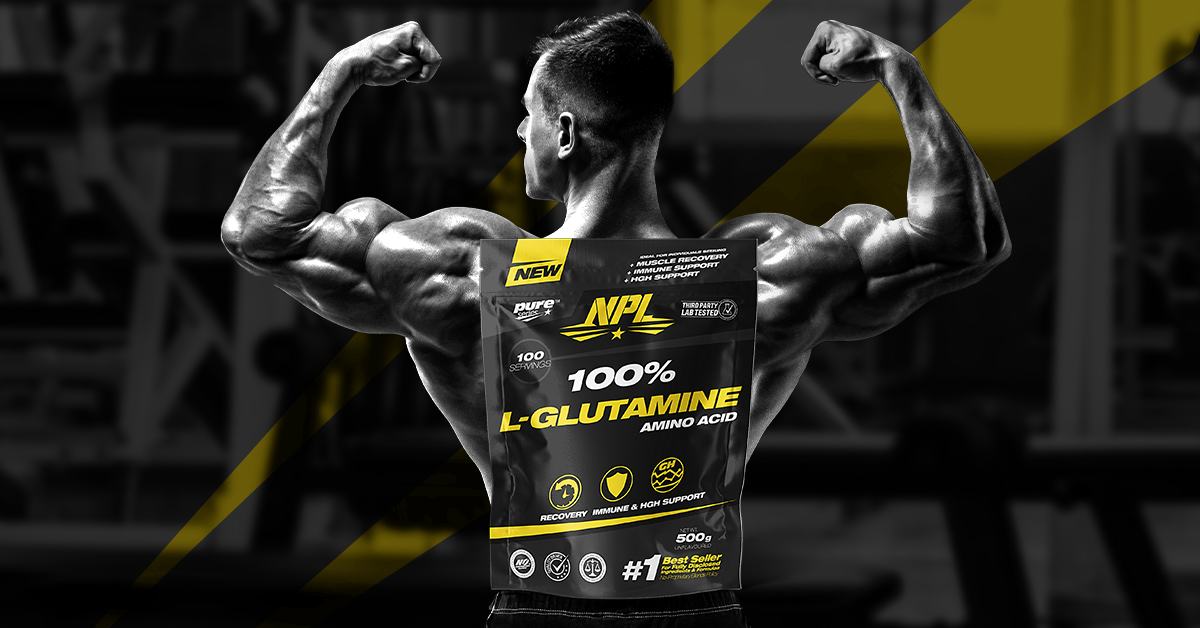What Is L-Glutamine and When to Use It?

What’s Glutamine All About?
We often get caught up in the muscle-building hype. How quickly can I build muscle and which products will deliver the best gains? But it's easy to overlook the vital processes that contribute to overall wellness, such as gut and immune health. These play a major role in recovery, ultimately supporting muscle growth and maintenance. That's where L-glutamine comes in.
Glutamine, or L-glutamine, is the most abundant amino acid in the body. While your body produces it naturally, intense training and prolonged stress can deplete glutamine levels. Supplementing with L-glutamine restores these levels, making sure you have enough energy and the right bodily processes are running smoothly.
Training Recovery
If you're hitting your workouts hard, L-glutamine is a great supplement for easing muscle soreness and accelerating recovery. Its anti-catabolic properties help protect your muscle mass by preventing breakdown, keeping you in an anabolic state where muscle growth thrives.
For even better results, combine L-glutamine with branched-chain amino acids (BCAAs) to enhance recovery and keep your amino acid levels in check.
Gut Health
L-glutamine brings a lot to the table, especially when it comes to gut health. It helps strengthen and repair the intestinal lining, supporting your gut's essential microbiome and boosting your body’s natural defences. Additionally, L-glutamine has been shown to reduce symptoms linked to increased gut permeability, promoting overall digestive wellness.
Immune Health
During times of physical or mental stress, when your immune system might be running low, L-glutamine can step in to strengthen your immune response.
It helps support the activity of white blood cells, which play a crucial role in fighting off infections and diseases. Plus, it contributes to the production of glutathione, a powerful antioxidant that reduces oxidative stress and supports overall immune health.
When is the Best Time to Take It?
Take L-glutamine first thing in the morning on an empty stomach, right after your workout, or before bed. For optimal benefits, aim for a daily dosage of 5-15 grams, depending on your training intensity and personal goals.
Taking it on an empty stomach ensures quicker absorption. Consuming it within 20 minutes post-exercise or before bed helps restore depleted glutamine levels, aiding in muscle repair and reducing soreness.
For convenience, you can mix it into your protein shake or daily creatine supplement to streamline your routine. Adjust the amount based on your needs, whether you're focusing on recovery, muscle maintenance or overall well-being.






